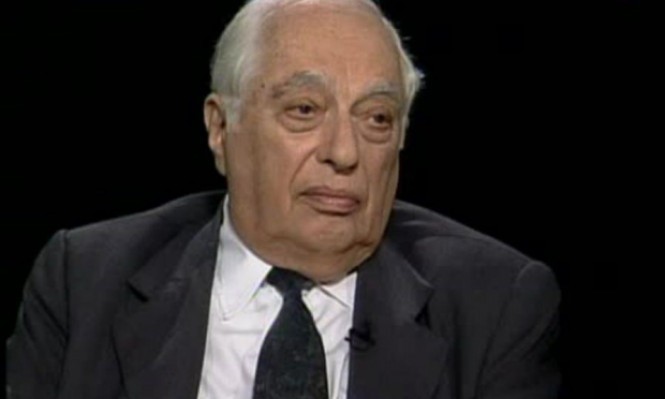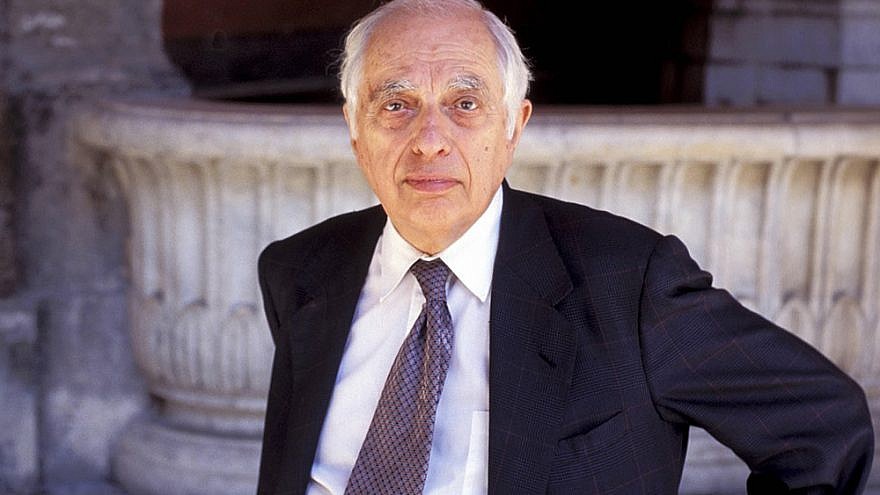Following the death of preeminent historian and Middle East researcher Prof. Bernard Lewis of Princeton University, many articles were published in the Arab media about his activity and his attitude towards the Arab and Islamic countries.
Most of the articles expressed opposition to him and his ideas, but quite a few praised him, stating that he possessed profound knowledge and a rational approach, that he was always an enlightening lecturer and was sympathetic towards Islam, and that he was one of the most important historians of the modern era.

The following are collected quotes from articles in the Arab media about Prof. Bernard Lewis:
Praise For Prof. Lewis: One Of The Most Important Historians Of The Modern Era
Lebanese journalist Nadim Qutaish told of his 2005 meeting with Prof. Lewis at his home in Princeton, New Jersey, and stated that it was Lewis who coined the term “clash of civilizations,” not political scientist Samuel Huntington as is commonly thought. He wrote: “[Prof. Lewis] praised Islam for its legacy of tolerance and of recognition of the other, and called it ‘one of the world’s great religions… [that] has given dignity and meaning to drab and impoverished lives.”[1]Such a statement is inconsistent with Lewis’s reputation in the Middle East as a hater of Islam and the Muslims… and particularly not with his role in giving cultural weight to the Bush administration’s decision to invade Iraq, which was made without taking Bernard Lewis’s opinion into account…
“Lewis never ceased to amaze, and to present questions challenging conventions. His most alarming question was: ‘Most Muslims are not terrorists. But why are most terrorists Muslims?’ Truly, why?”[2]
In an article titled “Bernard Lewis, Engineer of the Partition of the Middle East,” Saudi journalist Muhammad Al-‘Adadi wrote: “Lewis opposed the invasion of Iraq, and said so in more than one interview in the press and on television.” Criticizing the argument that Lewis had contributed to the alleged plan to divide the Arab world, he wrote: ‘The Arab and Islamic world has been dividing and crumbling since the meeting in the hut of the Banu Sa’ida, to this day,[3] [and this will continue] tomorrow, and this precedes Lewis, America, and Israel by centuries. This is because Islam provides fertile ground for the exploiting of its texts by all the political powers fighting [out of] lust for power and for control of the ummah [Islamic nation]. The most salient example of this is the Sunni-Shi’ite divide, which is nothing but the direct result of a blood feud over the seat of power between ‘Ali and A’isha, and then between ‘Ali and Mu’awiya, between Yazid and Hussein, and so on,[4] throughout Arab and Islamic history, to this very day…
“Thus, I largely agree with Bernard Lewis regarding the statements attributed to him, according to which the Arab countries are not structurally suited for democracy, because of the remnants of the past and the depth of the heritage of tyrannical control by means of exploitation of the region by all the elements, including by means of deadly weapons that certainly set back [the chance for future democracy] for decades, if not centuries. Proof of this may be the Arab Spring revolutions and their catastrophic results, that we witnessed in Libya, Syria, and Yemen…
“States’ schisms, or unity, emanates from within, in accordance with the social, political, and historical makeup of each state – it is not caused by an academic named Bernard Lewis…”[5]
Saudi journalist Mamdouh Al-Muhaini, of Al-Arabiya TV, wrote: “…Bernard Lewis taught at the most important universities, and published important essays on Islamic heritage… He was blessed with profound historic knowledge and [the capability for] rational analysis. Some disagree with him, and have amended some of his conclusions. But he is a celebrated historian [who has nevertheless been called]… a fascist and imperialist… The [smear] campaign [against him] is preventing [Arab] societies from freely conducting intellectual debate and from accepting new ideas without prejudice, [thus] intensifying vituperation and invective, reinforcing the culture of conspiracy [theories], and [seeing] rational intellectuals with answers to our problems as traitors and agents… In this world, Lewis will remain forever one of the most important historians of the modern era.”[6]
In an article in the Lebanese daily Al-Nahar, Jihad Al-Zain wrote: “Bernard Lewis… was one of the people [responsible] for my modest education. He was among those who encouraged me to adhere to a formula that has become fundamental for me – that when reading of any important writer, to refrain from connecting [what I am reading] to his political leanings or to some or all of the biases that drive his cultural instincts – [I do] the opposite…
“Despite Lewis’s political criticism of the Arabs, [despite] his enthusiastic pro-Israel bias, and despite his harsh and even cruel statement that we [Arabs] are fundamentally inferior in our capability to adapt to modernity… one can also read his acknowledgement… of the effectiveness of the Palestinian Intifada…
“I call [on you the reader] to read him and afterwards to take any stand you wish. As a politician, Lewis was among the most enlightening of rivals… and like any true scholar, he [was] an enlightening and indispensable lecturer, and I recommend this type of rival.”[7]
Anti-Lewis Writers: He Was A Zionist Who Contributed To The Disintegration Of The Arab States
Hani ‘Asal, columnist for the Egyptian government daily Al-Ahram, wrote: “Bernard Lewis is dead, but his ideas will not die. Several days ago, the British-American writer, researcher, Orientalist, academic, and intellectual died at a New Jersey medical center, 12 days before his 102nd birthday. He left behind a complex world and a burning Middle East, exactly as he wished.
“The late Edward Sa’id did not exaggerate when he accused [Lewis] of anti-Arab and anti-Muslim bias, and of ‘not understanding the Middle East as [well as] he thinks [he does].’ Nevertheless, the West will continue to look upon us for [at least] the next century from this man’s point of view – since what he wrote on the region is the ideological basis for the West’s current policy and decisions vis-à-vis our countries, and there is little [of what he wrote] that has not yet been implemented in practice.
The full report can be read at MEMRI here.























